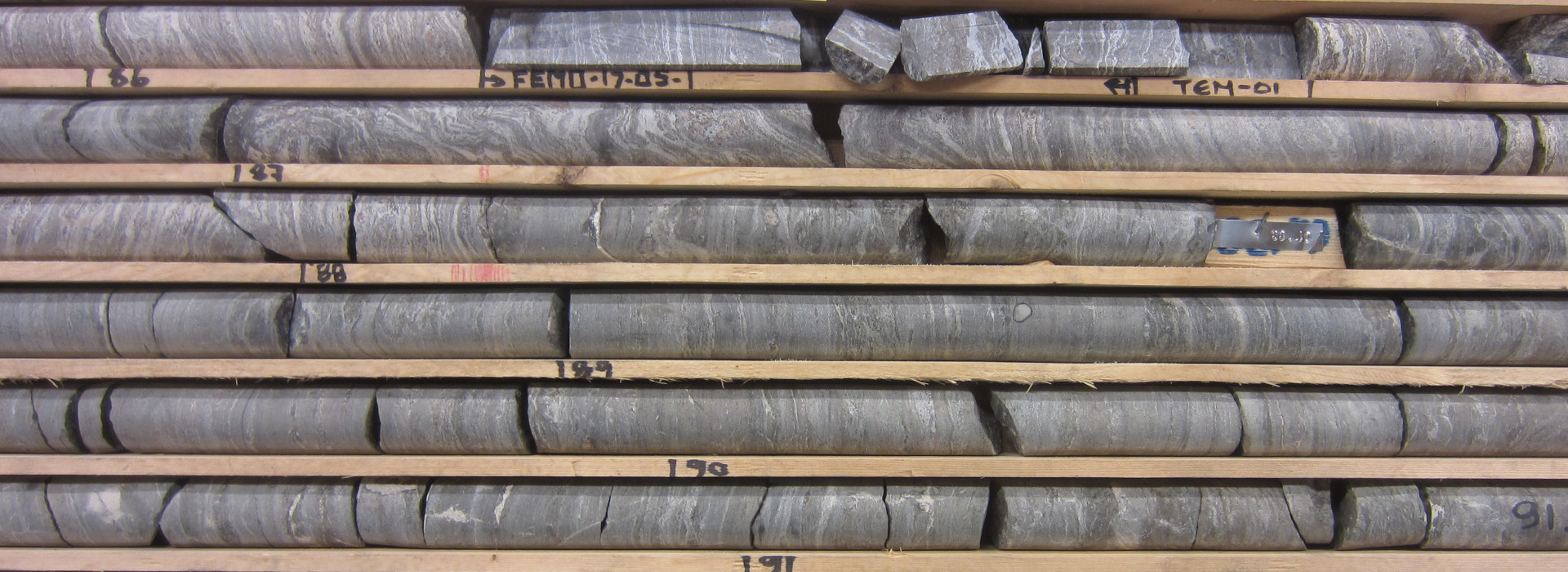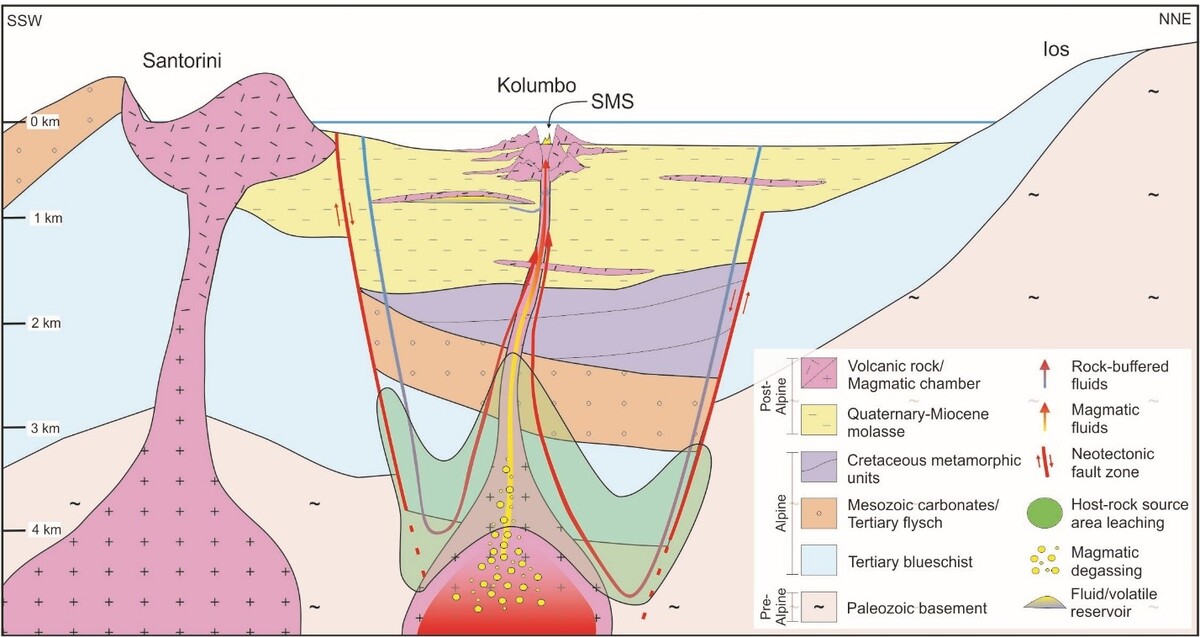ASK: The Actively forming Sulfide mineralization in the Kolumbo volcano (ASK): source of metals in shallow marine magmatic-hydrothermal systems
- Ansprechperson:
- Förderung:
DFG Grant PA 3523/2-1
Rapid global population growth and major energy and technological shifts towards low carbon emission society both highly increase and deeply modify our needs for raw materials. Despite improvement of a circular economy, access to new primary raw materials, including critical raw materials, is crucial. One of the possible targets to secure access to new raw materials are magmatic-hydrothermal ore deposits which form in shallow submarine volcanic-arcs and which are often referred to as hybrid epithermal-volcanogenic massive sulfide (VMS) deposits. These deposits are variably enriched in precious metals (Ag, Au), base metals (Cu, Pb and Zn) and critical/trace metals (As, Bi, Ga, Ge, Hg, Sb, Se, Te and Tl).
Despite the economic significance, their genesis is still not well characterized. A long standing question is the source of the metals enriched in the deposits. Volatile loss associated with magmatic differentiation is commonly interpreted as an efficient mechanism for mobilizing metals in volcanic arcs but large mass of metals is also mobilized during seawater-derived hydrothermal fluid circulation in the crust and could represent an alternative metal source. The extent to which either of these processes contributes to mineralization in the hybrid epithermal-VMS deposits is not known. Investigation of an actively forming deposit will provide essential information about the sources of metals and their geochemical path. The Kolumbo shallow submarine arc-volcano, located in the 5 Ma-to-present Aegean volcanic arc in Greece, hosts an active hydrothermal system currently forming polymetallic VMS mineralization with high As, Ag, Au, Hg, Sb and Tl contents. The Kolumbo hydrothermal system represents one of the very few known hybrid active analogue style of epithermal-VMS mineralization associated with continental margin volcanism. Furthermore, basement rocks, representing the potential metal source areas, outcrop in the neighboring islands. As such, it is a perfect natural laboratory to investigate the entire system from source to sink. This project aims to characterize the sources of the metals enriched in Kolumbo sulfide mineralization using an innovative method which focuses both on the metal sink and the metal sources of Kolumbo’s polymetallic VMS deposit. Mineralized chimneys, volcanic rocks and basement lithologies from Kolumbo’s volcano will be thoroughly studied using state-of-the art whole rock and in-situ analyses coupled to numerical modelling. This project is ground breaking in the field of ore geology due to the holistic approach of an actively forming deposit in a continental margin environment and fits within the scope of the DOME Special Priority Programme. The unique database generated will provide insight into of metal fluxes at a crustal scale. Being able to precisely characterize the metal sources will have important implications on the understanding of ore deposit formation, not only for Kolumbo but also for hybrid epithermal-VMS.

